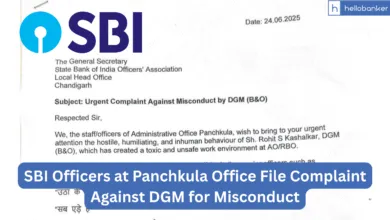RBI has announced these banks as Very Important Banks (D-SIB), These Banks can never fail in India

| ➡️ Get instant news updates on Whatsapp. Click here to join our Whatsapp Group. |
The Reserve Bank of India (RBI) has reaffirmed the status of State Bank of India (SBI), HDFC Bank, and ICICI Bank as Domestic Systemically Important Banks (D-SIBs).
While ICICI Bank remains in the same categorization as the previous year, there are notable changes for SBI and HDFC Bank. SBI moves from bucket 3 to bucket 4, and HDFC Bank shifts from bucket 1 to bucket 2, as per the RBI’s announcement.
For SBI and HDFC Bank, the heightened D-SIB buffer requirements resulting from the bucket adjustments will take effect from April 1, 2025. It’s important to note that the additional Common Equity Tier 1 (CET1) requirement will be applied in addition to the capital conservation buffer.
DSIB Framework
The D-SIB framework mandates the Reserve Bank to disclose the names of banks designated as D-SIBs since 2015 and categorize them into respective buckets based on their Systemic Importance Scores (SISs), as stated by the RBI.
Once a D-SIB is assigned to a specific bucket, an extra common equity requirement is imposed on it. In the event that a foreign bank with a presence in India is identified as a Global Systemically Important Bank (G-SIB), it is required to maintain an additional CET1 capital surcharge in India. This surcharge is determined in accordance with its status as a G-SIB, relative to its Risk Weighted Assets (RWAs) in India.
Background
In 2015 and 2016, the Reserve Bank had designated SBI and ICICI Bank as D-SIBs. Subsequently, following data collected from banks as of March 31, 2017, HDFC Bank was included in the D-SIB category alongside SBI and ICICI Bank. The recent update is founded on information gathered from banks as of March 31, 2023, and considers the heightened systemic significance of HDFC Bank following the merger of the erstwhile HDFC Ltd into HDFC Bank on July 1, 2023.

Request rbi to go at grassroot level in branches and collect data and then publish report. Do not depend on secondary sources